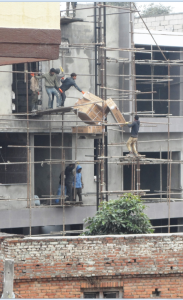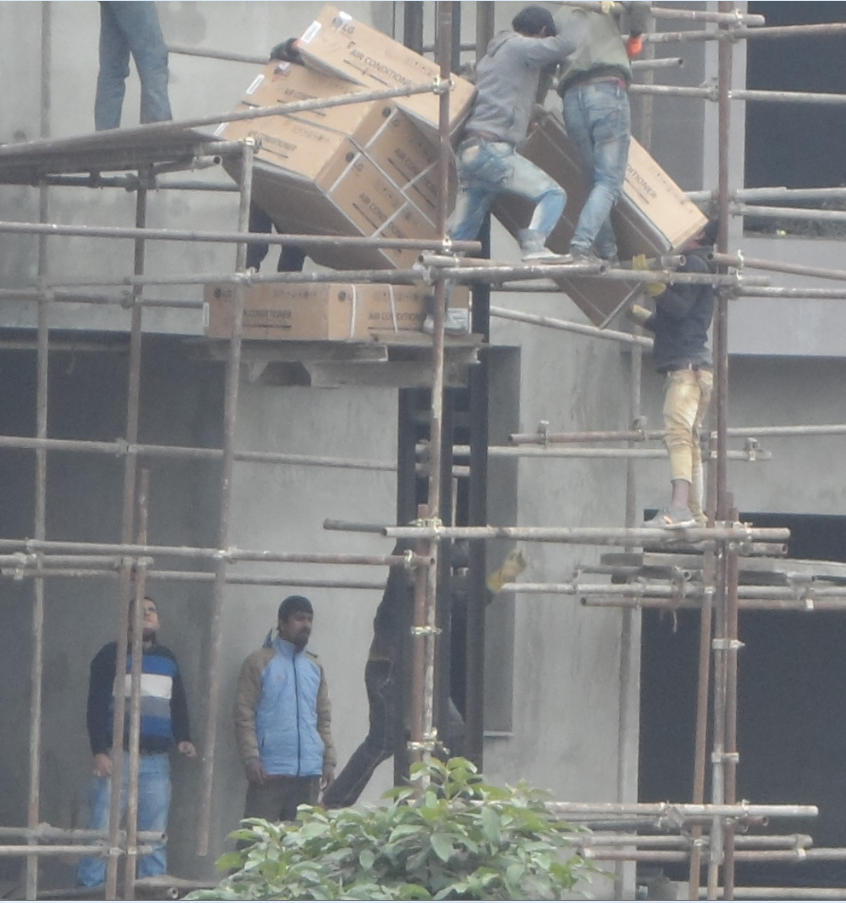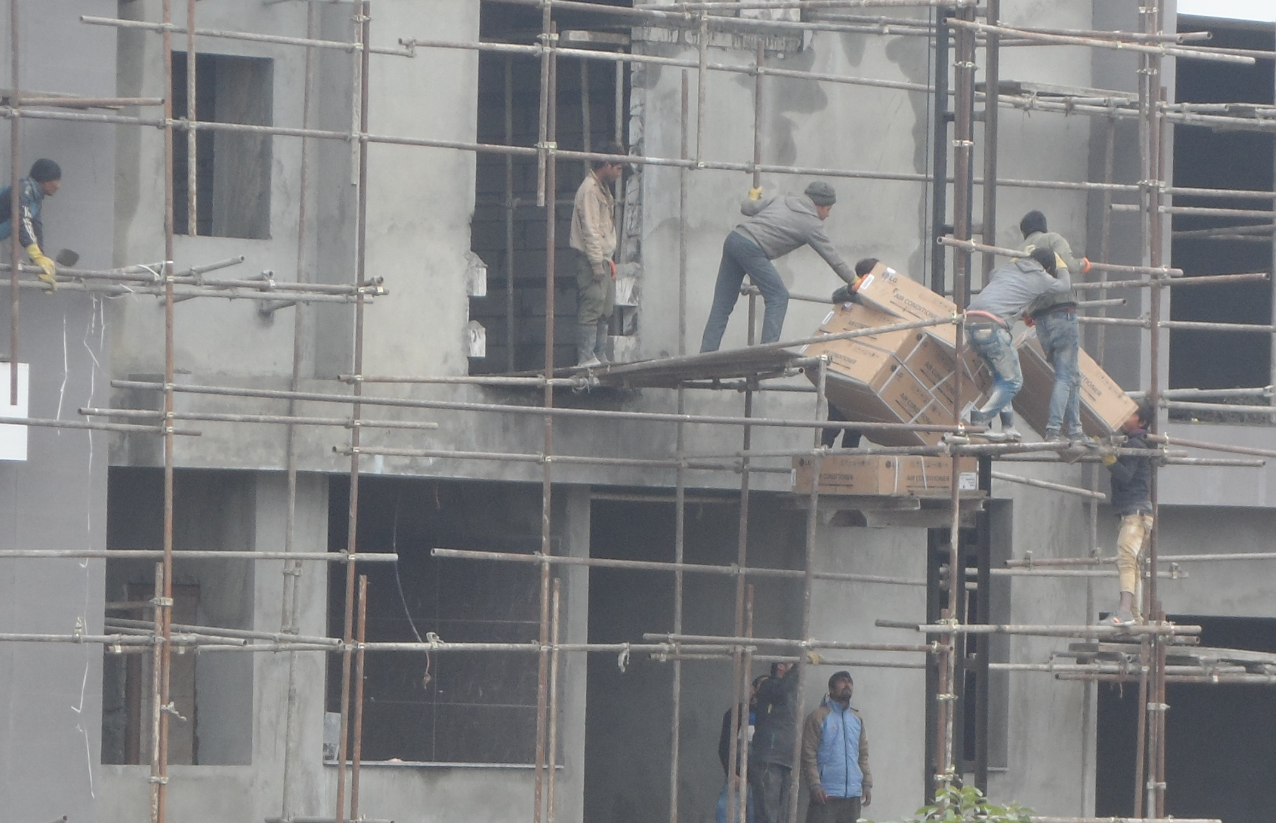The end of 2019 saw a flurry of announcements and planning documents as the government issued detailed notes on the Queen’s Speech, building on their manifesto commitments, and the Office for Students issued a detailed annual review with an accompanying blog giving some ideas about what is coming up next.
If you missed our policy update on 20th December which covers these things in quite a lot of detail, you can read it here.
Focus on drop-out rates
One thing that was trailed in the OfS review and accompanying blog was a concern about continuation and completion rates. This is of course not new, continuation is a metric in the TEF and this is an area of focus in Access and Participation Plans across the sector.
From Research Professional:
- Universities minister Chris Skidmore has said institutions should be held “individually responsible” for a surge in students abandoning their studies. Skidmore said it was “essential” that universities improve their dropout rates and called for universities to provide better support for students once they have enrolled on courses.
- His comments on 3 January came as an analysis by the Press Association of the Higher Education Statistics Agency data found around two-thirds of UK universities saw an increase in their dropout rates between 2011-12 and 2016-17.
- “Universities need to focus not just on getting students through the door, but making sure they complete their course successfully,” said Skidmore. “It’s essential that dropout rates are reduced. We cannot afford to see this level of wasted talent.”
- But he said each university and even individual courses should be held “individually accountable for how many students are successfully obtaining a degree” so that it can be transparent where there are “real problems” with dropout rates.
- In March 2019, former education minister Damian Hinds told universities that high dropout rates could make people think they are only interested in “bums on seats”rather than supporting students. He also promised that the Office for Students would pressure universities to reduce non-continuation rates and would take action if improvements were not made.
- Commenting on the Press Association analysis, vice-chancellors’ body Universities UK said many universities have plans to support students once they at university, including the access and participation plans English universities must submit to the Office for Students.
- “Universities are committed to widening access to higher education and ensuring students from all backgrounds can succeed and progress,” a UUK spokeswoman said. “However, it is clear that non-continuation is still an issue and institutions must continue to work to support students to progress and succeed at university.”
Headlines have been highly critical of the sector. We have not been able to access the analysis itself, but the news outlets are mostly reporting the same data: Daily Mail: Abertay University in Dundee had the largest increase, from 3.5 per cent to 12.1 per cent. In England, Bedfordshire University saw the biggest rise, from 8.3 per cent to 15.2 per cent. Seven institutions had a rise of more than five percentage points, while 19 had an increase of more than three percentage points.
Student Loans overhaul
The BBC reported on 30th December that the SLC would be modernising repayment information with a new online service in 2020.
- A new online repayment service will launch in 2020, offering graduates more up-to-date balance information, the Department for Education said. Education Secretary Gavin Williamson said the changes would make it easier for students to “understand their balance” and “manage their loan”.
- To prevent overpayments, the government is also urging graduates to switch from salary deductions to direct debit towards the end of their loan.
- Universities minister Chris Skidmore said: “With more and more people enjoying the benefits of a university education, it’s only right that graduates have easy access to the information they need about repaying their student loan. “I urge all graduates to use this new service and to join the direct debit scheme as they approach the end of their loan to ensure a smooth end and not repay more than they should.”
- An SLC online repayment website does currently exist, but the new repayment service will have more up-to-date information than graduates are currently able to access, the Department for Education said.
You can read more on the DfE website here
Brexit – it’s not over until it’s over
Parliament passed the second reading of the Withdrawal Agreement Bill just before Christmas with a majority of 124. It will be back in front of Parliament on 7, 8 and 9th January. The BBC have helpfully summarised it for us, and also what has changed since the Theresa May version (which was never actually published):
What does the WAB actually cover? Among other things:
- It sets out exactly how the UK will make “divorce bill” payments to the EU for years to come
- It repeals the European Communities Act, which took the UK into the EU, but then reinstates it immediately until the end of 2020 when the transition period ends
- It contains language on how the new protocol on Ireland – setting up what amounts to a customs and regulatory border between Northern Ireland and Great Britain – will work in practice
- It sets out areas in which the European Court of Justice still plays a role in the UK, and makes the withdrawal agreement in some respects “supreme” over other areas of UK law
- One of those areas may be in the arbitration procedure for disputes about the withdrawal agreement. The bill introduces a duty for the government to report on this
- It prohibits any extension to the transition period beyond the end of 2020, even if a free trade deal isn’t ready in time
- In the section on citizens’ rights it sets up an independent monitoring authority (IMA) with which EU nationals in the UK can lodge any complaints about the way the government treats them
- In several policy areas, particularly in Northern Ireland, the bill gives ministers a lot of power to change the law (through secondary legislation) without MPs getting to vote
- It introduces a duty for the government to report on its use of the arbitration procedure for disputes about the withdrawal agreement
What’s been changed? A number of clauses in the previous version of the bill have been removed. They include:
- The possibility of an extension to the transition period and the procedures around that. The bill now prohibits ministers asking for an extension.
- Workers’ rights protections – the government says these will now be part of a separate bill.
- Checks and balances that MPs were offered as an inducement to pass the old bill in October. For example, the requirement for the government’s negotiating position on the future relationship with the EU to be approved by Parliament has gone. And the government’s position no longer needs to be in line with the political declaration – the non-legally binding document that accompanied the withdrawal agreement and sets out aspirations for the future relationship.
- A clause on child refugees. The bill removes the requirement, introduced by Lord Dubs,to agree a deal that if an unaccompanied child claims international protection in the EU, they may come to the UK if they have relatives living in the country. The new bill only requires a government minister to make a statement setting out policy on the subject within two months. Between 2016 and 2018, 426 unaccompanied children came to the UK in this way.
Given that all the Conservative Party candidates had to sign up to supporting it, it is very unlikely to fail.
But because some of you might be missing the Parliamentary “fun and games” of 2019, we thought we would bring you the latest list of amendments – it’s 42 pages long so far and likely to grow again by Tuesday. Of course, which ones are debated are partly down to the (new) Speaker as we all learned last year. not surprisingly some of them relate to the things that have been removed:
- Quite a few relate to sorting out the Ireland/Northern Ireland protocol and related issues– described by some as a “border down the North Sea” although before the holiday the PM was still denying that there would be checks or paperwork between the UK and NI.
- Some relate to an extension of the implementation period – e.g. must extend if a deal is not reached by a date in June unless the House agree otherwise (one says by 1st June, one says by 15th and they attach different conditions. One has a security partnership as well as a trade deal.
- A weird one saying that Big Ben will ring when the UK leaves the EU.
- Quite a few amendments about EU citizens’ rights including for unaccompanied children
- Some trying to restrict the power of the government to make regulations under the new law, e.g. on human rights or tax, or devolved government
- Some relate to Parliamentary sovereignty over the future relationship with the EU. There is also one about “non-regression from EU standards”, one about mutual recognition and standards and one about a “level playing field”.
- There is one that requires the devolved governments to approve the Act before it can come into force and two requiring the House to endorse economic impact assessments of the measures under the Bill before they are implemented.
- There is one about workers’ rights
- There is one about participation in the European Medicines regulatory network, one about Euratom, one about a security partnership.
- There are three about a customs union and a single market
- There is an unusual one about “probity of the Ministers of the Crown” requiring Ministers to make a personal declaration that they have complied with the 7 Nolan Principles of Public Life in relation to the UK’s withdrawal from the EU. There is also one about a public inquiry into the events leading up to withdrawal and one about an independent review of the impact of withdrawal.
- There is one about Erasmus+ being a negotiating objective
The problems with apprenticeships
The BBC has a story about “fake” apprenticeships. They aren’t actually fake – just alleged to be not doing what they were intended for – which the report writers define as courses that “relate to helping young people get started in a skilled job or occupation”.
Half of apprenticeship courses in England have been accused of being “fake” by an education think tank.
- The EDSK report says the apprenticeship levy – paid by big employers – is being used on low-skilled jobs or relabelling existing posts, rather than training.
- Tom Richmond, the think tank’s director, said the apprenticeship scheme was “descending into farce”.
- But a Department for Education spokeswoman defended apprenticeships as becoming “better quality”.
- The apprenticeship levy is paid by large employers, who contribute 0.5% of their salary bill into the training fund.
- But since 2017, the report claims £1.2bn from the levy has been spent on jobs “offering minimal training and low wages” or on “rebadging” jobs already offered by employers as apprenticeships.
- In its first full year of operation, the levy raised £2.7bn and this is expected to rise to £3.4bn by 2023-24.
- Apprenticeship spending is too often used on “existing adult workers instead of supporting young people into the workplace”, the report warns.
- The report also criticises £448m spent on apprenticeships aimed at degree and postgraduate level.
You can read the report here.
- The most costly higher-level apprenticeship has been the ‘Accountancy / Taxation Professional’ course at Level 7 (equivalent to a Master’s degree), which has used £174 million of levy funding since 2017 by claiming to cover roles as diverse as Financial Accountants, Management Accountants, Tax Accountants, Tax Advisers, Tax Specialists, External Auditors, Internal Auditors, Financial Analysts, Management Consultants, Forensic Accountants and Business Advisors. For a single ‘apprenticeship’ to cover such a breadth of respected and wellpaid jobs is questionable, to say the least.
- In addition, the ‘Senior Leader apprenticeship’ – aimed at CEOs, CFOs, senior military officers and Heads of Department among others – can include an MBA, which explains why it has quickly become a major source of revenue for business schools and consumed over £45 million in just two years.
- Inappropriate rebadging of training courses also extends beyond the world of business and finance. The ‘Academic Professional apprenticeship’ – designed by 23 Higher Education (HE) institutions including the University of Oxford, the University of Durham and Imperial College London – is an overt attempt by these organisations to relabel their university academics as ‘apprentices’ to use up the university’s own levy contributions. The fact that you typically need a PhD to be accepted onto this levy-funded training course confirms that it bears no relation whatsoever to any genuine apprenticeship.
The report also makes some recommendations:
INTRODUCING A WORLD-CLASS DEFINITION OF AN ‘APPRENTICESHIP’
- 1: The Department for Education should introduce a new definition of an ‘apprenticeship’ that is benchmarked against the best apprenticeship systems in the world.
- 2: The Department for Education should restrict the use of the term ‘apprenticeship’ to training at Level 3 only.
SETTING A NEW VISION AND OBJECTIVE FOR THE LEVY
- 3: The apprenticeship levy should be renamed the ‘Technical and Professional Education Levy’ and all work-based learning from Level 4 to Level 7 should be renamed ‘Technical and Professional Education’ (TPE).
- 4: Bachelor’s degrees and Master’s-level courses that have been labelled as ‘apprenticeships’ should be excluded from the scope of the TPE levy.
- 5: The existing co-payment rate of 5 per cent for apprenticeships should be replaced by a tiered co-payment rate for all TPE programmes from Levels 3 to 6, starting at 0% co-payment for apprenticeships at Level 3 up to a 75% co-payment for Level 6 programmes.
REVISING THE FUNDING AND REGULATORY FRAMEWORK
- 6: The current system of 30 ‘funding bands’ from £1,500 to £27,000 should be replaced by five ‘price groups’ for apprenticeships at Level 3 and higher-level TPE programmes.
- 7: The 10 per cent ‘top up’ invested by government in the HMRC digital accounts of levy-paying employers should be withdrawn.
- 8: Ofsted should be made the sole regulator for any apprenticeships and technical and professional education funded by the new TPE levy, including provision in universities.
Subscribe!
To subscribe to the weekly policy update simply email policy@bournemouth.ac.uk
JANE FORSTER | SARAH CARTER
Policy Advisor Policy & Public Affairs Officer
Follow: @PolicyBU on Twitter | policy@bournemouth.ac.uk











 Every BU academic has a
Every BU academic has a  By clicking on this box, on the left of the Research Blog home page just under the text ‘Funding Opportunities‘, you access a
By clicking on this box, on the left of the Research Blog home page just under the text ‘Funding Opportunities‘, you access a 










 BU attendance at third annual GCPHR meeting in June
BU attendance at third annual GCPHR meeting in June Interactive Tangible and Intangible Heritage Applications – BU student work featured in new book chapter
Interactive Tangible and Intangible Heritage Applications – BU student work featured in new book chapter Second NIHR MIHERC meeting in Bournemouth this week
Second NIHR MIHERC meeting in Bournemouth this week MSCA Postdoctoral Fellowships 2025 Call
MSCA Postdoctoral Fellowships 2025 Call ERC Advanced Grant 2025 Webinar
ERC Advanced Grant 2025 Webinar Horizon Europe Work Programme 2025 Published
Horizon Europe Work Programme 2025 Published Horizon Europe 2025 Work Programme pre-Published
Horizon Europe 2025 Work Programme pre-Published Update on UKRO services
Update on UKRO services European research project exploring use of ‘virtual twins’ to better manage metabolic associated fatty liver disease
European research project exploring use of ‘virtual twins’ to better manage metabolic associated fatty liver disease